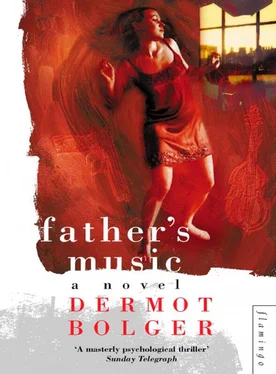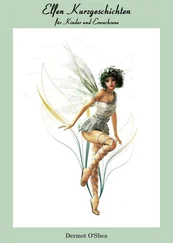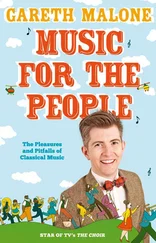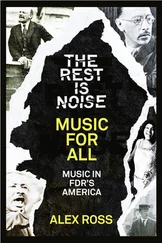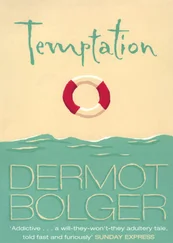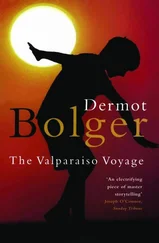‘Tell me about the canal again.’
‘No.’
‘Go on, Luke.’
He rises on one elbow. Is he angry or scared?
‘You’re one mad bitch at times,’ he says.
‘Only at times? Go on, tell me about James Kennedy.’
I know he will tell me and he knows that I know. But not for a while yet. The story must be drawn from him. Thirty years later the memory is still raw. Sixteen months ago I watched my mother die in Harrow, but I had been prepared for it, with nurses discreetly waiting in the background and the cleansing scent of disinfectant. Her death had been so prolonged I had grown almost resentful of her. But what must it have been like at eleven to see your best friend drown?
Before then Luke’s brother, Christy, was the gang’s natural leader. But, at twelve, Christy was initiating himself into the stronger currencies of adolescence; the webs of factory skylights, the nods of silent fences, the expanding limits of pubescent girls allowing themselves to be manoeuvred into alleyways. In that vacuum James Kennedy had become the Canal King, the reigning monarch of their childhood who plotted wars and conquests, with Luke happy as his lieutenant.
Somewhere in Luke’s memory it must still be that parched July day, when thirty rival youths were beaten back from the canal lock and James Kennedy’s gang danced on the rotten planks in Y-fronted celebration. They dived repeatedly from the wooden gates, raising a constant spray of foam as dogs shook themselves dry on the tow-path and an old tramp hunched down to watch, sucking on a discarded butt. What madness made Luke dive from so high up on the lock, and what choice had James but to climb even higher? The hush began before James’ body even broken the water, as each boy counted the seconds, waiting for James’ head to re-emerge. Thirteen seconds, fourteen, fifteen. Nobody wanted to admit that something was wrong. Nineteen, twenty, the sudden rush of bodies instinctively diving in.
James was still alive when they gathered around him, his foot caught in the spokes of an old wheel. Lush reeds were twisted round his ankle. Some boys claimed that the reeds were alive, wrapping themselves tightly round James’ shin no matter how often they tried to prise them away. The others were forced to surface for air, while James’ kid brother, Joe, screamed and wet his trousers on the bank. There was only James and Luke left down there, with James’ face turning blue and his eyes curiously calm as if saying; ‘you’re the new king, kiddo, it’s all on your shoulders now’. When the others dived again it was to pull their hands apart and bear Luke up into his new kingdom of barking dogs and sirens under the scorching sun.
Soon Luke will tell me this story again beneath the blankets, his voice cold and emotionless. I’ll feel his penis stiffen and know that afterwards he will turn me on my stomach, his hands merciless as he grasps my hips to drag me back and forth. I will raise my hands to pull the blankets tight, drowning under the blackness we are submerged beneath, as I listen to his hard excited breath and think of how his heart will beat, loud and fast as if scared, in the silence after we have spent.
I open my eyes, surprised that I have slept. I can hear the Asians watching a Star Trek movie. The carpet is threadbare and cold against my feet. I find my tights in the street light coming through the gaps in the blinds, hesitate and then pocket his walkman with the tape. Sean Maguire is the fiddler, he says. I think of Luke in jail that one time in Dublin, slopping out and being ridiculed for listening to bog music like that, with his family name alone protecting him. Luke claims that he has been a legitimate businessman for years now, but he never tells me why he served time and there are things that even I know not to ask.
The hotel room is freezing. I find my skirt and shoes. Luke hates me leaving without waking him. That’s why he has hidden my knickers. He will reach for them beneath the mattress in half an hour’s time, fingering them like some obscure consolation as he imagines me sitting on the swaying tube to Angel, being eyed by black youths in baseball hats. My legs will be crossed as I read the ads for fountain pens and office temps, while in my ears his tape will play like a phantom pain, bringing back all the memories I have never told him about.
The child whom I was once in my grandparents’ house in Harrow seems like a stranger now. By day she would obey her Gran’s clock-work ordinance, but alone at night she would close her eyes to imagine rooftops huddled against a Donegal hillside and neighbours gathering to hear her father play in hamlets and remote glens. I can see her still dancing barefoot, while my mother and Gran argued about her future downstairs. Swaying to tunes she could only imagine and spinning ever faster until, finally, falling on to the bed and gripping the blankets dizzily over her head, she almost believed that his fiddler’s hands were swaying in the shadow of the cherry-blossom branches against her window: my dark father secretly making music for the daughter whose existence he had never bothered to acknowledge.
II
THAT SUMMER BEFORE I had met Luke it seemed to be raining incessantly almost every Sunday when I woke. Drab light pervaded my bedsit as I lay on until noon, stranded between dreams and wakening, before dragging myself under the shower down the hallway.
Later, as winter came in, I would resent Luke for becoming the focus of my Sundays. Before I met him they never dragged in that way. I had taken a slovenly delight in them, only bothering to cook myself a leisurely dinner and eat it in my dressing gown before the television when daylight was already teetering in the sky. The payphone on the landing rarely rang on Sundays and I made certain it never rang for me. I lived my real life away from that house of cheap flats in Islington and I recognised the other tenants only by the tread of their footsteps past my door.
Since moving into that flat after my mother’s death, Sunday was the evening when, once a month or so, I allowed men to chat me up. I liked Sunday nights for that and I liked to hunt alone. The weekend was effectively over, with men less on the prowl and less in love with themselves and, on Monday morning, if they were lucky enough (few were and fewer deserved to be) I’d enjoy their predicament in trying to manoeuvre me from their beds in time to make a dash for work. Sometimes, with the more nervous types, I’d sleepily turn over, letting them stew with visions of a ransacked flat on their return and messages scrawled in lipstick for neighbours to read. Once or twice I even stayed on alone, wrapping myself in their bath robes and fingering the details of their lives after they had gone.
I always made sure they had somewhere to go, with proper jobs and nice apartments. I preferred my casual lays to be conventional. Accountants who bleated as they came and grinned uncomfortably when asked if their pure wool pullovers were purchased in Harrods or sheared off their backs by their mammies. Bitch , I heard them mutter in their minds. But they were hooked, calculating the odds and afraid to blow it. They’d rush to the bar to buy stronger drinks, hoping to catch their friends’ eyes and be rewarded with a wink.
Sex seemed easier with people I’d nothing in common with. Their dull lives were exotic really. Ordered men swallowed any lie you threw at them. They scampered off when I finally allowed them to, desperate to brag confidentially about the former nun from Bishop’s Stortford or the Leamington Spa zoologist they had picked up. Perhaps I judged some too harshly. A decent one or two probably bothered to phone the number I gave them and were hurt to find themselves speaking to the answering machine at the Battersea Dogs’ Home.
Читать дальше
